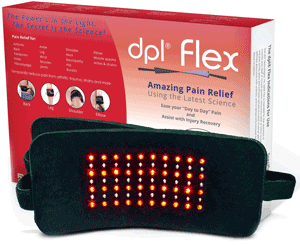To quote the great economist John Maynard Keynes, when accused of flip-flopping on his own opinion:
“When the facts change, I change my mind. What do you do sir?”
(Actually, there is no real evidence that he said this, but for our purposes let’s assume he did).
And to quote another famous expert, namely myself in this original post, on the subject of using Apple Cider Vinegar as an acne treatment:
“Although based in some kind of pseudo-science the whole argument for ACV is fundamentally flawed.”
And
“ACV is about the most vile substance you could consider putting on your face or in your stomach.”
I believe I also called Apple Cider Vinegar “wacky”, a “placebo for the desperate” and said that it “does taste like shit”.
Ooops.
Turns out there is one major benefit to drinking Apple Cider Vinegar (although the many disadvantages discussed in my previous post still stand), I was just doing it wrong.
Drinking ACV might help acne after all…
Insulin, the hormone which is released by your pancreas in response to glucose entering the bloodstream (when you eat sugary or starchy carbohydrates) to bring your blood sugar level back under control, is highly inflammatory for anyone with acne-prone skin.
As a quick recap, insulin can cause any or all of the following:
- Insulin stimulates the growth of skin cells, which multiply faster and cannot be “sloughed off” the surface of your skin as efficiently, blocking pores
- It also stimulates the growth of keratin-producing cells, which “stick” skin cells together and further prevent them from being sloughed off naturally, blocking more pores
- Insulin stimulates the (over)production of sebum, which, funnily enough, blocks pores
- It weakens the skin’s natural barrier, the acid mantle, leaving your skin exposed to bacterial colonisation by P. acnes, the acne-forming bacteria and other irritants (like pollution)
- Insulin stimulates the production of testosterone, which contributes to all of the above
- It also makes the skin more sensitive to testosterone, increasing its acne-genic effects even further
All of which makes insulin very bad news for those with acne and therefore, anything you can do to reduce insulin levels will be good for acne. That’s why my very low carb ketogenic diet keeps my skin clear, alongside the vitamin and mineral supplements I take daily.
As it turns out, Apple Cider Vinegar has been shown to reduce the body’s insulin response to carbohydrate consumption quite significantly.
In a relatively unscientific, but to my mind still perfectly valid case study for the excellent BBC show Trust Me, I’m A Doctor (which you can read about here) the researchers recruited healthy individuals and asked them to eat two high-carb bagels after an overnight fast.
They then measured their blood sugar levels and surprise surprise, noted a rapid and significant rise in blood sugar (and therefore insulin).
Next day, the same subjects were asked to eat the same high-carb food but immediately beforehand, drink a diluted shot of Apple Cider Vinegar (sadly, the article doesn’t mention the specific amount).
The result?
The ACV reduced the rise in blood sugar by a whopping 36%.
That’s a huge decrease in blood sugar and therefore a huge decrease in insulin, and potentially therefore a huge decrease in acne.
Interestingly enough, normal malt vinegar had no effect, suggesting there is something peculiar about the ACV which might make it especially beneficial for those with acne.
Preserving my credibility…
The researchers also measured effects on weight loss, cholesterol, aches and pains and crucially for acne sufferers, inflammation.
Despite a small reduction in cholesterol, I’m pleased to say that in all other respects my original opinion was right and ACV proved to be quack medicine, with no measurable reductions in any of the factors measured.
Why didn’t it work for me the first time?
All of this new information (or new to me, at least) explains why drinking ACV never produced any real effects on my acne.
I drank it first thing in the morning, on waking up. And in those days, as now, I didn’t eat any breakfast (because this can also be good for acne, and because it allows me to get on and take care of business without breakfast slowing me down).
So I drank this vile glass of vinegar, but didn’t eat anything. There was no insulin response for it to reduce.
Then I went on and ate my lunch (in those pre-enlightened days, probably a high-carb tuna baguette) and my dinner (plenty of starchy mashed potatoes or fries) and so my insulin levels were entirely unchecked, as was my acne.
Had I taken the ACV before my lunch and dinner, would it have had a beneficial effect on my acne? The evidence suggests it might.
Could anything less vile have the same effect?
If you want to try drinking a couple tablespoons of ACV in a tall glass of water before each meal, go right ahead.
Actually, as I see it the main advantage of this ACV effect could be more sporadic – you should still eat a low carb, healthy diet as much as possible because insulin resistance will still a negative effect on acne.
But let’s face it – it’s impossible to never go out, never have to eat a pizza at a friend’s house, or pass up your mom’s lasagne when you’re there to visit every single time.
So perhaps knocking back some ACV beforehand might just prevent some of the acne you would otherwise have had.
Personally I won’t be drinking ACV at all, firstly because I don’t need to anymore and secondly because I was right in my original post – it does taste like weasel piss.
But could any other food or supplement have the same insulin-moderating, acne-relieving effect?
Well, sugar can be “blocked” from entering the bloodstream by eating soluble fibre (such as is found in salads and leafy vegetables) provided the fibre is eaten before the sugar/starch.
However, research suggests that it takes approximately 10 grams of soluble fibre to reduce blood sugar by around 25%.
That’s less of a blood sugar reduction than ACV, for a start.
And while 10 grams of soluble fibre doesn’t sound like a lot, it’s the equivalent of eating all of the following:
- Two cups of lettuce
- One cup of tomatoes
- One cup of bell peppers
- Two thirds of a cup of broccoli
After eating all that I’m not sure you’d still want those donuts, so perhaps that’s the most effective blood sugar reducer after all!


